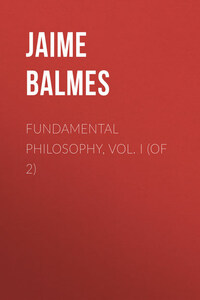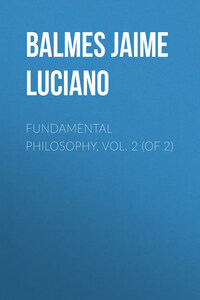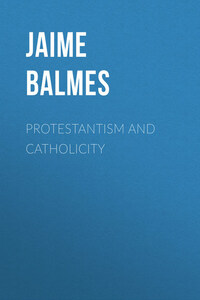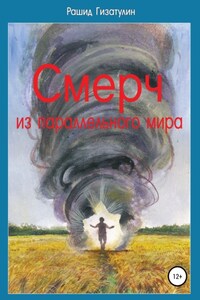The following translation of the great work of the lamented James Balmes on Philosophy, was undertaken at my suggestion and recommendation, and thus far I hold myself responsible for it. I have compared a considerable portion of it with the original, and as far as I have compared it, I have found it faithfully executed. The translator appears to me to have rendered the author's thought with exactness and precision, in a style not inferior to his own.
I have not added, as was originally contemplated, any Notes to those of the author. To have done so, would have swelled the volumes to an unreasonable size, and upon further consideration, they did not seem to me to be necessary. They would, in fact, have been an impertinence on my part, and the reader will rather thank me for not having done it. The work goes forth, therefore, as it came from the hands of its illustrious author, with no addition or abbreviation, or change, except what was demanded by the difference between the Spanish and English idioms.
James Balmes, in whose premature death in 1849, the friends of religion and science have still to deplore a serious loss, was one of the greatest writers and profoundest thinkers of Spain, and indeed of our times. He is well and favorably known to the American public by his excellent work on European civilization, – a work which has been translated into the principal languages of Europe. In that work he proved himself a man of free and liberal thought, of brilliant genius, and varied and profound learning. But his work on the bases of philosophy is his master-piece, and, taken as a whole, the greatest work that has been published on that important subject in the nineteenth century.
Yet it is rather as a criticism on the various erroneous systems of philosophy in modern times, than as containing a system of philosophy itself, that I have wished it translated and circulated in English. As a refutation of Bacon, Locke, Hume, and Condillac, Kant, Fichte, Schelling, and Spinoza, it is a master-piece, and leaves little to desire. In determining the fundamental principles of philosophy, and constructing a system in accordance with the real world, the author is not always, in my judgment, successful, and must yield to his Italian contemporary, the unhappy Abbate Gioberti.
When criticizing the errors of others, the distinguished author reasons as an ontologist, but when developing his own system, he is almost a psychologist. His ontology is usually sound, indeed, and his conclusions are for the most part just, but not always logically obtained. He recognizes no philosophical formula which embraces the whole subject-matter of philosophy, and does not appear to be aware that the primum philosophicum is and must be a synthesis; and hence he falls into what we may call, not eclecticism, but syncretism. This is owing to the fact that his genius is critical rather than constructive, and more apt to demolish than to build up.
What I regard as the chief error of the illustrious Spaniard, is his not recognizing that conceptions without intuitions are, as Kant justly maintains, empty, purely subjective, the mind itself; and hence, while denying that we have intuition of the infinite, contending that we have a real and objectively valid conception of it. Throughout his book the reader will find him maintaining that the human mind may, by discursion, attain to valid conceptions of a reality which transcends intuition. This I regard as an error. Discursion is an act of reflection, and though there is always less there can never be more in reflection than in intuition. If we have no intuition of the infinite, we have and can have no proper conception of it, and what is taken to be a conception of it is simply the human mind itself, and of no objective application or validity.
The excellent author is misled on this point, by supposing that in intuition of the intelligible the mind is the actor and not simply the spectator, and that an intuition of the infinite implies an infinite intuition. In both cases he is mistaken. In intuition we are simply spectators, and the object affirms itself to us. In intuition of the infinite, it is not we who perceive and affirm the infinite, by our own intellectual act, but the infinite that reveals and affirms itself to our intellect. In apprehending the infinite as thus revealed and affirmed, we of course apprehend it in a finite, not in an infinite manner. That which is intuitively apprehended is infinite, but the subjective apprehension is finite. The limitation is on the part of the subject, not on the part of the object.
The error arises from failing to distinguish sharply between intuition and reflection. In intuition the principal and primary actor is the intelligible object. In reflection it is the intellective subject; in the intuitive order the object presents itself as it is, with its own characteristics; in the reflective order it is represented with the limitations and characteristics of the thinking subject. As the subject is limited, its conceptions are limited, and represent the infinite not as infinite, but as the not-finite; and it is in the reflective order, if we operate on our conceptions, instead of our intuitions, only by a discursive process that we can come to the conclusion that the not-finite is the infinite. The author not distinguishing the two orders, and taking conceptions which belong to the reflective order as if they belonged to the intuitive order, supposes that we may have valid conceptions beyond the sphere of intuition. But a little reflection should have taught him that, if he had no intuition, he could have no conception of the infinite.










